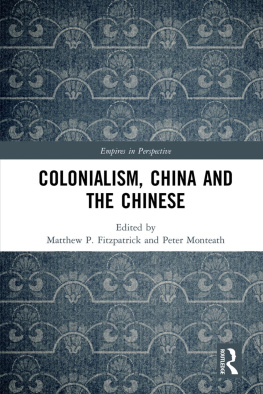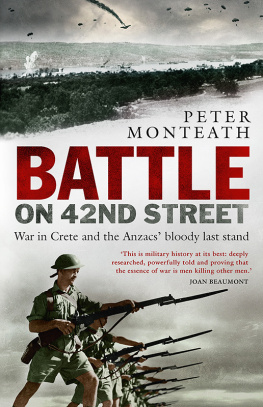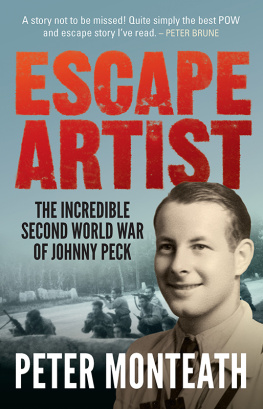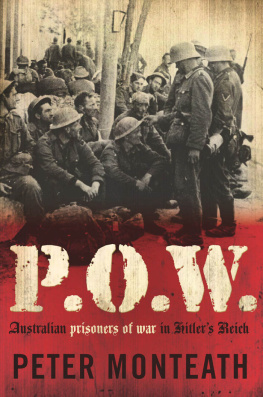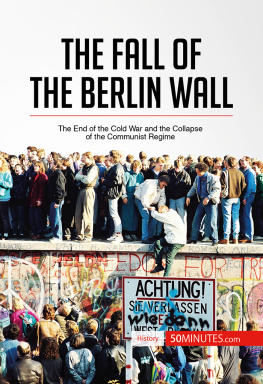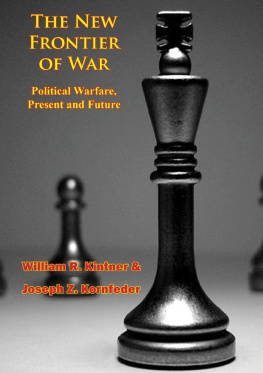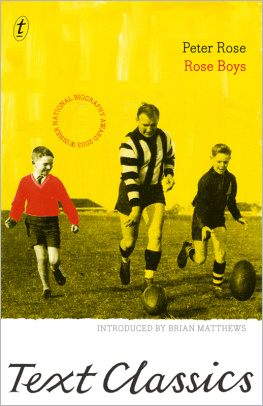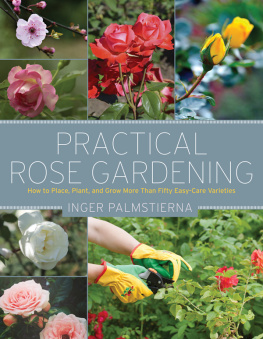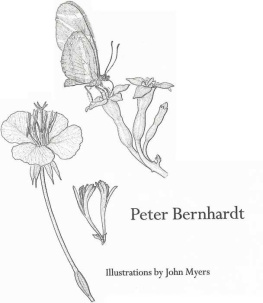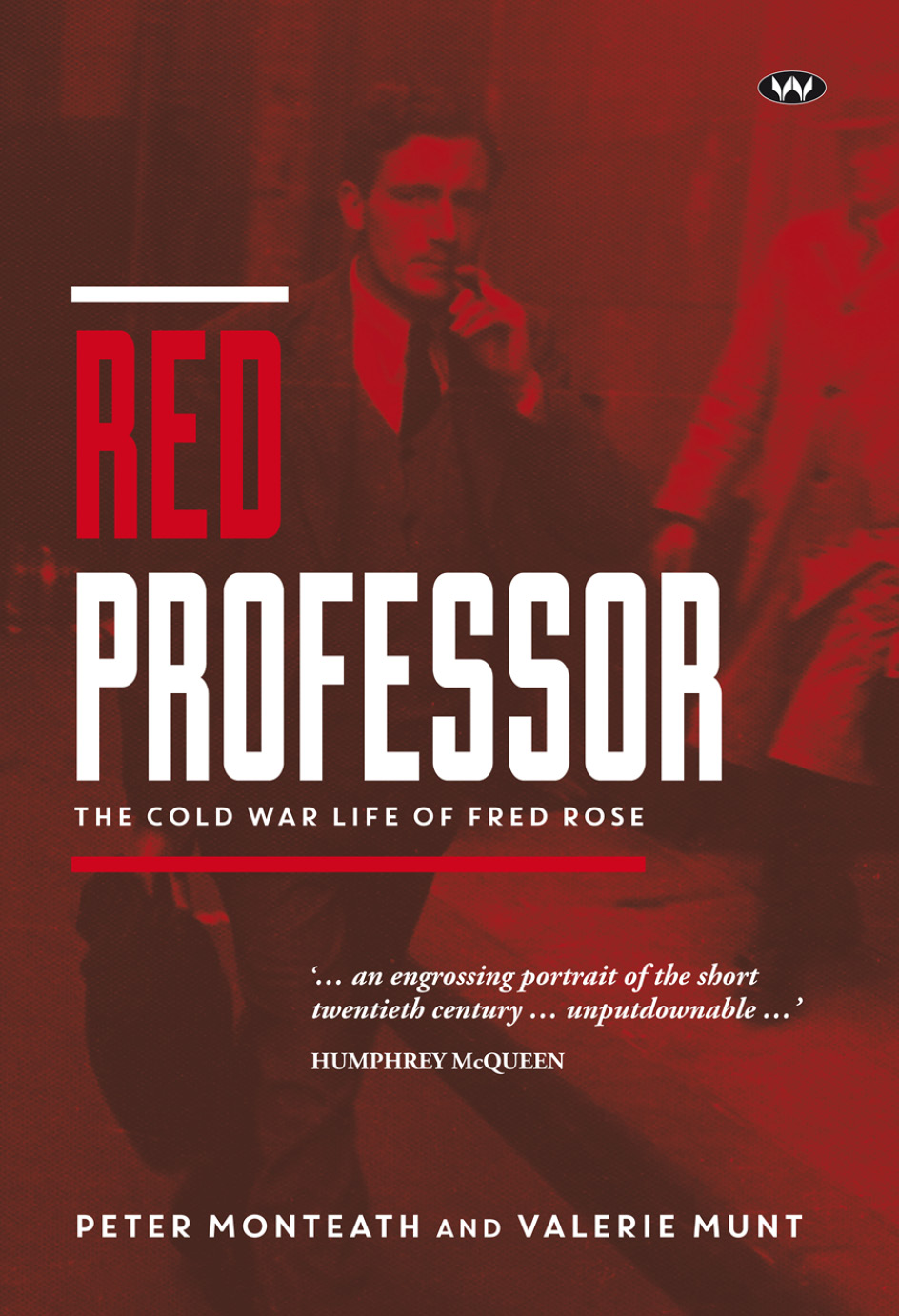
Wakefield Press

Peter Monteath teaches History in the School of International Studies at Flinders University in Adelaide, Australia. He is also a Fellow of the Alexander von Humboldt Foundation. He is the author of POW: Australian Prisoners of War in Hitlers Reich (PanMacmillan 2011). His most recent book with Wakefield Press is Interned: Torrens Island 19141915 (2014).
Valerie Munt is an Adjunct Lecturer in History in the School of International Studies at Flinders University. She was born and educated in Adelaide, graduating with an Honours Degree in History and a PhD from Flinders University and a Masters degree in Education from the University of South Australia. She was tutor in Modern European History at Flinders University from 2005 to 2010. Her current research interests are in the history of Anthropology and the history of ideas.
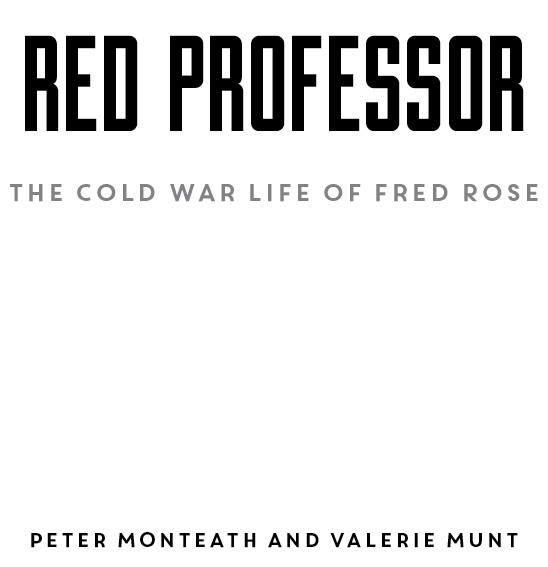

Wakefield Press
16 Rose Street
Mile End
South Australia 5031
www.wakefieldpress.com.au
First published 2015
This edition published 2015
Copyright Peter Monteath and Valerie Munt, 2015
All rights reserved. This book is copyright. Apart from any fair dealing for the purposes of private study, research, criticism or review, as permitted under the Copyright Act, no part may be reproduced without written permission. Enquiries should be addressed to the publisher.
Edited by Julia Beaven, Wakefield Press
Ebook conversion by Clinton Ellicott, Wakefield Press
National Library of Australia Cataloguing-in-Publication entry
Creator: Monteath, Peter, author.
Title: Red professor: the cold war life of Fred Rose / Peter Monteath and Valerie Munt.
ISBN: 978 1 74305 135 1 (ebook: epub).
Notes: Includes bibliographical references.
Subjects:
Rose, Frederick G.G. (Frederick George Godfrey), 19151991.
CommunistsAustraliaBiography.
CommunistsGermanyBiography.
AnthropologistsAustraliaBiography.
AnthropologistsGermanyBiography.
Other Creators/Contributors: Munt, Valerie, author.
Dewey Number: 335.43092
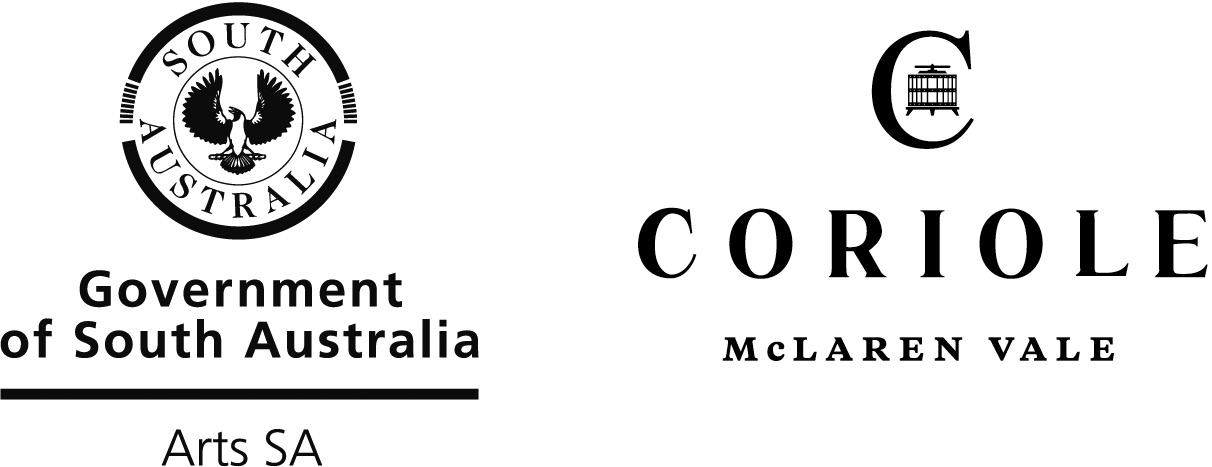

Publication of this book was assisted by the Commonwealth Government through the Australia Council, its arts funding and advisory body.
Acknowledgements
This book has had a long gestation, longer than most. There were very many who gave advice along the way, and many attentive midwives present as the contractions intensified.
First and foremost we are deeply indebted to surviving members of Fred Roses family, and in particular his daughters Sonja, Ruth and Nita, who have suffered our meddling in their familys history with exemplary forbearance. Without their support this biography would have suffered a still-birth. Above all we note the generosity of Ruth Struwe and her husband Rainer, who not only opened the doors of their home to strangers but facilitated access to a collection of words and images that helped us gain a much firmer grasp of Fred Roses life than would otherwise have been conceivable.
As Fred Rose was long dead before we had even heard of him, we have relied hugely on the memories and the generosity of many who came to know Fred and who played greater or lesser roles in his life, whether in Australia, Germany or Roses native England. For their generosity in recalling the life and times of Fred Rose we extend our sincerest thanks to Eric Aarons, Hans-Horst Bethge, Cathy Bloch, Eric Bogle, Anke Bornschein, Gordon Briscoe, Neville Cunningham, Ted Egan, Salomea Genin, Elena Govor, Gnter Guhr, Ann Ikoku, Erika Karasek, Walter Kaufmann, Stefan Kurella, Esther Linde, Judy Maclean, Hannah Middleton, Ute Mohrmann, John Mulvaney, Nicolas Peterson, Lee Rhiannon, Deborah Bird Rose, Kathrin Rose-Dabrunz, Lothar Stein, Harald Struwe, Ursula Thiemer-Sachse, Bob Tonkinson, Mirna Tonkinson, David Turner, Victor Williams, Monika Wolf, Julia Worsley and Alan Wright.
When we began our research there was not so much as a Wikipedia article on Fred Rose, at least not on our Fred Rose. In hauling him from near-oblivion we were aided by the staff of numerous archives in libraries in Australia and Germany. Our thanks go to all of them. We would like to express our particular gratitude to Jim Andrighetti and Sarah Morley at the State Library of New South Wales, Marion Kretzschmar and Gerlinde Schade at the archive of the Agency of the Federal Commissioner for the Stasi Records in Berlin, Sylvia Grfe at the Bundesarchiv in Berlin-Lichterfelde, Franoise Barr at the Northern Territory Archives Service, Dagmar Seemel at the Humboldt University Archive, Barry Cundy, Polly Mailau, Kylie Simpson and Russell Taylor at AIATSIS, and both Craig Brittain and Sita Austin at the Flinders University Library. Pamela Lynch in Canberra helped fill gaps in our records of the collection of the National Archives in Canberra. Keith Lambert, accompanied by Robert and Kenny, excelled in introducing us to the living archive of todays Umbakumba and what remains of the flying boat base on Groote Eylandt. Last but by no means least, special thanks go to Martina Voigt of the Museum of German Resistance in Berlin, who not only helped us navigate our way through Stasi records but also helped piece together the remarkable history of the Linde family.
Not all were as helpful as they might have been. The relative transparency of records of espionage in Germany and Australia contrasted strikingly with the murky world of the CIA and the British Secret Service. Following their policy of neither confirm nor deny, representatives of both organisations consigned our queries to the Rumsfeldian domain of unknown unknowns.
As the life of Fred Rose at times took us outside our own intellectual comfort zones, we solicited advice from many scholars who helped us to understand, even if all too imperfectly, the worlds of twentieth century anthropology, espionage and politics. We are especially grateful to Des Ball, Lachlan Clohesy, Woodrow Denham, Brian Dickey, John Docker, Bill Edwards, Geoff Gray, Ben Hall, Philip Jones, Beate Kosmala, David McKnight, Humphrey McQueen, Ursula Rack, Tom Sheridan, Evan Smith, Peter Sutton, Martin Thomas, James Urry and Christine Winter.
Sadly not all who helped us have lived long enough to see the fruits of their labours. We hope we have done justice to their contributions. Before he died in 2009, Vladimir Kabo shared with us some of his recollections of Fred Rose. The late Arthur Easton introduced us to the vast, uncatalogued collection of Roses papers in the State Library of New South Wales, while Coral Bell, who knew Rose in Canberra in the late 1940s, shared her recollections of a fellow-public servant shortly before her death in 2012. The redoubtable Peter Worsley, who probably knew Fred Rose as a man and a scholar as well as anyone, died in 2013, having lavished us with practical advice and gratefully received moral support. Last but no means least, the late Geoff Curthoys shared with us his memories of Fred and the Australia they both knew so well.
Next page

